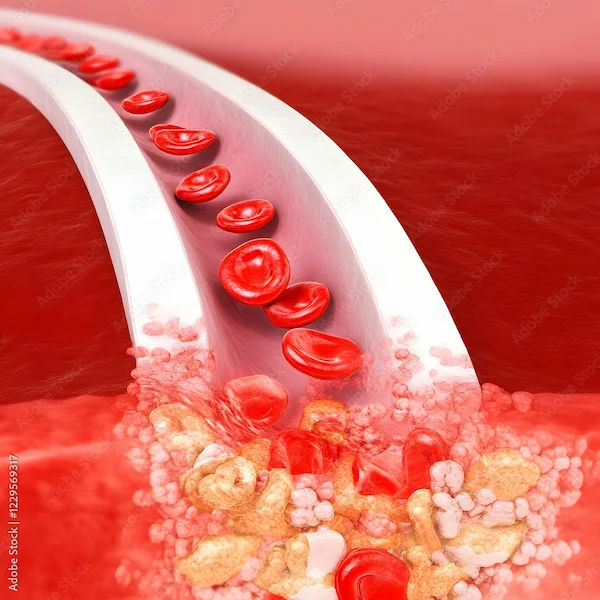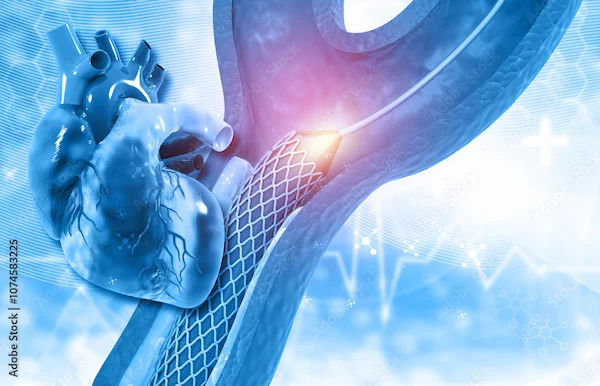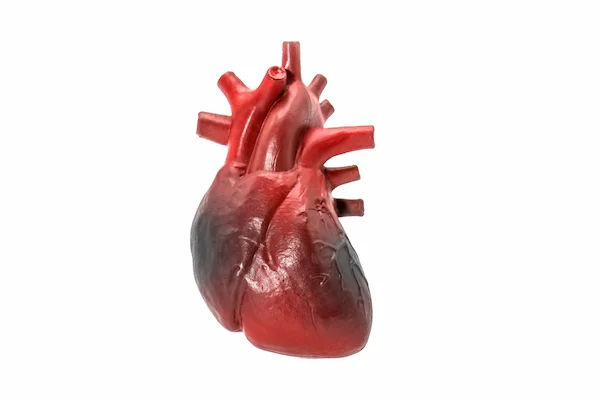Bypass Surgery Without Opening Chest In India
Explore minimally invasive bypass surgery (MICS CABG) in India, a "keyhole" technique avoiding open-chest incisions. Discover leading hospitals and benefits like faster recovery.

Written by Dr.Sonia Bhatt
Last updated on 20th Jul, 2025
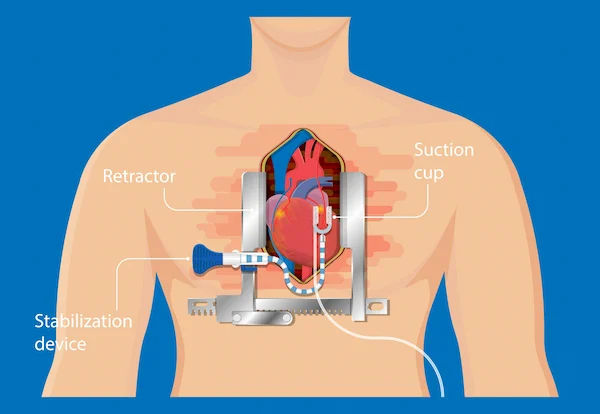
Introduction
Heart disease is a leading cause of health concerns worldwide, and sometimes, treatments like bypass surgery become necessary to restore proper blood flow to the heart. Traditionally, bypass surgery involves opening the chest, which can be daunting for many patients. However, advancements in medical science now offer a less invasive option—bypass surgery without opening the chest.
If you or a loved one has been advised to undergo bypass surgery, this article will help you understand this modern approach, its benefits, and what to expect.
What Is Bypass Surgery Without Opening the Chest?
Bypass surgery, or Coronary Artery Bypass Grafting (CABG), is performed to improve blood flow to the heart when arteries are blocked. Traditionally, this involves a large incision in the chest and temporarily stopping the heart.
However, Minimally Invasive Direct Coronary Artery Bypass (MIDCAB) and Robotic-Assisted CABG are newer techniques that allow surgeons to perform the procedure without splitting the breastbone. Instead, small incisions are made, and specialized instruments (sometimes robotic arms) are used to complete the surgery.
Who Is Eligible for This Procedure?
Not everyone is a candidate for this type of surgery. It is typically recommended for patients with:
Single or double vessel blockages (not multiple blockages).
Good overall health (no severe lung or kidney disease).
No previous major chest surgeries.
Your cardiologist will evaluate your condition and determine if this approach is right for you.
Benefits of Bypass Surgery Without Opening the Chest
Compared to traditional bypass surgery, this minimally invasive approach offers several advantages:
Smaller Incisions – No large chest cut means less scarring.
Faster Recovery – Patients often leave the hospital in 35 days (vs. 710 days for traditional surgery).
Less Pain & Blood Loss – Reduced trauma to the body.
Lower Risk of Infection – Smaller wounds heal faster.
Quicker Return to Daily Activities – Many patients resume work within 34 weeks.
What to Expect Before, During, and After Surgery?
Things to keep in mind:
Before Surgery
You will undergo tests like angiograms, ECG, and blood work to assess heart function.
Your doctor may advise stopping certain medications (like blood thinners).
You’ll receive instructions on fasting before the procedure.
During Surgery
You’ll be under general anesthesia.
The surgeon makes small incisions (often between the ribs) to access the heart.
A heartlung machine may or may not be used, depending on the technique.
The blocked artery is bypassed using a healthy blood vessel (usually from the leg or chest).
After Surgery
You’ll spend 1-2 days in the ICU for monitoring.
Mild pain and discomfort are common but manageable with medication.
You’ll be encouraged to walk gently within a day or two to aid recovery.
Full recovery usually takes 4-6 weeks, with gradual resumption of activities.
Consult Specialists For personalised Tips
Lifestyle Changes for a Healthy Heart PostSurgery
Bypass surgery is a major step, but maintaining heart health requires longterm care. Here’s how you can support your recovery:
1. Eat a Heart Healthy Diet
Include fruits, vegetables, whole grains, and lean proteins.
Avoid processed foods, excess salt, and saturated fats.
Opt for healthy fats like olive oil, nuts, and fish.
2. Stay Active (As Advised by Your Doctor)
Start with short walks and gradually increase activity.
Avoid heavy lifting or strenuous exercise until cleared by your doctor.
3. Quit Smoking & Limit Alcohol
Smoking damages blood vessels—quitting is crucial for recovery.
Alcohol in moderation (if permitted by your doctor).
4. Take Prescribed Medications Regularly
Blood thinners, cholesterol-lowering drugs, and blood pressure medications may be needed.
5. Manage Stress & Mental Wellbeing
Practice deep breathing, meditation, or yoga.
Seek support from family or counseling if needed.
When to Consult a Doctor?
While minimally invasive bypass surgery has fewer complications, watch for:
Severe chest pain or shortness of breath.
High fever or signs of infection (redness, pus at incision sites).
Irregular heartbeat or excessive swelling.
If you experience any of these, contact your doctor immediately.
Why Choose Apollo Hospitals for Bypass Surgery?
Apollo Hospitals is a pioneer in minimally invasive cardiac surgeries, offering:
Experienced heart surgeons specializing in robotic and keyhole techniques.
Advanced technology for precision and safety.
Personalized care with dedicated cardiac rehabilitation programs.
If you or a loved one needs expert advice or surgery, book a consultation with Apollo’s top cardiologists today via Apollo 24|7.
Final Thoughts
Bypass surgery without opening the chest is a gamechanger for heart patients, offering a safer and quicker recovery. If you’ve been advised for bypass surgery, discuss this option with your doctor to see if it’s right for you.
Remember, a healthy heart starts with small steps—eating right, staying active, and following medical advice can help you lead a fulfilling life postsurgery.
Consult Top Cardiologists
Consult Specialists For personalised Tips

Dr. Amit. A. Bharadiya
Cardiologist
12 Years • MBBS, MD General Medicine, DNB Cardiology, FSCAI
Maharashtra
Surabhi Hospital, Maharashtra, Maharashtra

Dr. S B Bhattacharyya
Cardiologist
22 Years • MBBS, MD(General Medicine),DM (Cardiology)
Kolkata
Gariaheart Clinic, Kolkata
Dr. Jayarajah Mariappan
Cardiologist
45 Years • MBBS, MD(GEN MEDICINE), DM(CARDIOLOGY)
Chennai
Sooriya Hospital, Chennai
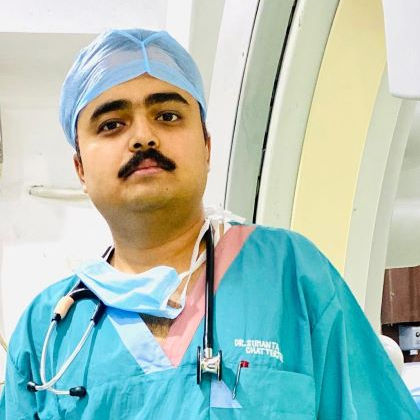
Dr. Sumanta Chatterjee
Cardiologist
12 Years • MBBS,MD General Medicine,DM Cardiology
Kolkata
HealthYou Speciality Clinic & Diagnostics., Kolkata
(25+ Patients)
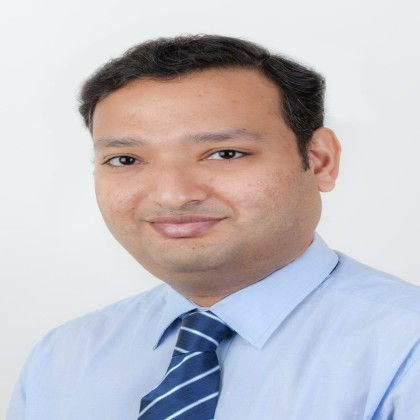
Dr. Mangesh Danej
Cardiologist
8 Years • MBBS, MD (General Medicine), DNB (Cardiology)
Pune
Dr Danej clinic, Pune
(375+ Patients)
Consult Top Cardiologists

Dr. Amit. A. Bharadiya
Cardiologist
12 Years • MBBS, MD General Medicine, DNB Cardiology, FSCAI
Maharashtra
Surabhi Hospital, Maharashtra, Maharashtra

Dr. S B Bhattacharyya
Cardiologist
22 Years • MBBS, MD(General Medicine),DM (Cardiology)
Kolkata
Gariaheart Clinic, Kolkata
Dr. Jayarajah Mariappan
Cardiologist
45 Years • MBBS, MD(GEN MEDICINE), DM(CARDIOLOGY)
Chennai
Sooriya Hospital, Chennai

Dr. Sumanta Chatterjee
Cardiologist
12 Years • MBBS,MD General Medicine,DM Cardiology
Kolkata
HealthYou Speciality Clinic & Diagnostics., Kolkata
(25+ Patients)

Dr. Mangesh Danej
Cardiologist
8 Years • MBBS, MD (General Medicine), DNB (Cardiology)
Pune
Dr Danej clinic, Pune
(375+ Patients)

